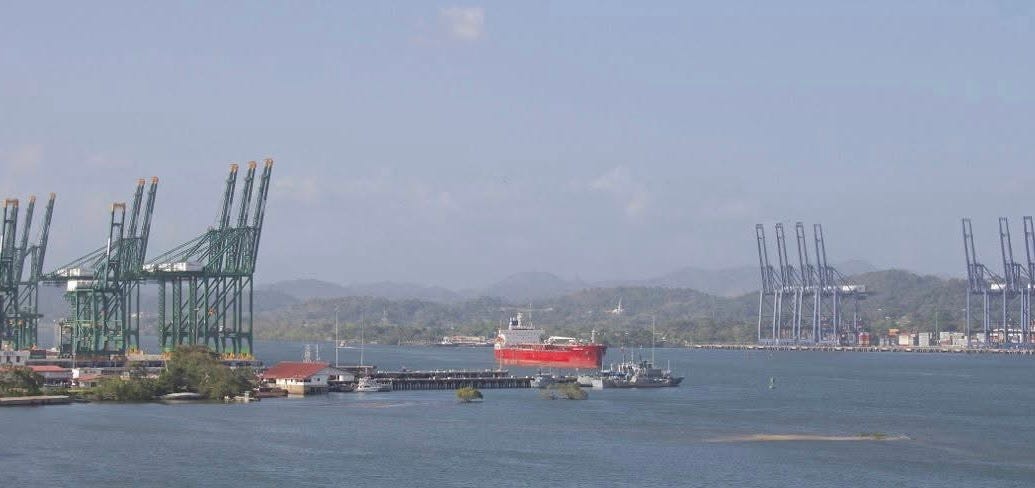Should I Give Up My Citizenship and Move Abroad?
Dreaming about nomad or expat life? Learn about citizenship, residency, and visas, and get a detailed checklist of essential considerations to help you plan your next chapter.
It’s a question I see in nomad and expat groups all the time: “How do I get citizenship in [insert country]?” Often, what they’re really asking about is something far less permanent, like a residency permit or a long-term visa.
And with today’s announcement that Canadian Prime Minister Justin Trudeau is stepping down, the question may be on even more people’s minds. Whatever your political leanings, moments of political instability often spark fresh conversations about leaving for good—or at least exploring your options.
Maybe you’re already living the nomadic lifestyle and thinking about slowing down to stay somewhere a bit longer. Perhaps you're ready to establish a few home bases, splitting your time between favorite spots. Or your job or business is fully remote now, giving you the freedom to explore new opportunities. Maybe—like me—you’re at the point the kids don’t need you around as much, and it’s finally time to embark on that next big adventure.
This guide highlights the key considerations to help you navigate these life-changing decisions.
First, we’ll explore what we’re really talking about when terms like citizenship, residency, and long-term visas come into play. Then, you’ll find a comprehensive checklist for planning long-term travel—or even a permanent move—to a new country. You’ll see references to Canadian citizenship and tax systems here as that’s my home country, but most of this is universal.
Disclaimer: All of this is from my perspective as a middle-aged remote worker who has spent much time examining my options. Nothing in this article is intended as legal or financial advice, and it should not be construed as such. Readers should consult competent legal and financial professionals before making significant decisions.
Understanding the Basics: Citizenship vs. Residency vs. Visas
When I see people discussing this topic online, it’s often clear that the terms citizenship, residency, and visa get used interchangeably. But these distinctions are crucial for anyone considering a move abroad.
Citizenship: A Commitment that Changes Everything
Citizenship grants you the right to a country’s passport, access to government services, and full legal protections. It is the most permanent and significant legal relationship you can have with a country, and for many, it’s a coveted status that represents stability and belonging.
However, obtaining citizenship without familial ties is often challenging and, in some cases, impossible. Many nations prioritize bloodlines or birthright over other paths to citizenship, such as naturalization. If you’re not born into citizenship or have ancestral claims, you’ll likely face an extensive process.
Naturalization often requires significant time and effort. Applicants are typically required to live in the country for a prescribed period, demonstrate language proficiency, and pass cultural or historical knowledge tests. For instance, Spain offers a naturalization pathway, but it usually requires 10 years of residency—though exceptions exist for individuals from former Spanish colonies.
Financial investment is another common route to citizenship, though it comes with hefty price tags. Programs like Malta’s Citizenship by Investment (CBI) allow individuals to acquire citizenship by making significant economic contributions, but such options are often controversial and tightly regulated.
It’s also crucial to understand whether the country you’re considering allows dual citizenship. Some nations, like Germany, may require you to renounce your original citizenship unless you qualify for specific exemptions (although their recently implemented ‘Law for the Modernization of Nationality Legislation’ is easing Germany’s restrictions on dual citizenship). Others, like Canada or the United States, allow dual citizenship, enabling you to maintain ties to your home country while acquiring a second nationality.
Any change in citizenship status is a life-altering decision. Beyond the legal and cultural shifts, it may impact your tax obligations, inheritance rights, and even family dynamics. That’s why it’s essential to seek professional guidance from an immigration lawyer and tax specialist before taking this step.
Residency: A Middle Ground for Long-Term Living
Residency allows you to live in a country for an extended period and often comes with access to some local benefits, like healthcare or education. It’s a flexible option for those seeking stability without the lifetime commitment of citizenship.
Residency can be obtained through various paths, including investment, starting a business, or employer sponsorship. For example, Mexico offers temporary residency to individuals who meet financial requirements or own property in the country.
However, residency often comes with responsibilities, including potential tax obligations. Many countries tax residents on worldwide income, so it’s essential to understand how your new status may affect your financial picture.
In Nicaragua, for instance, residency allows expats to avoid frequent visa renewals and access government services. But it also requires in-person renewal of a “cedula” at specific intervals, underscoring the need to stay compliant with local laws.
Here are a few residency options to give you an idea of what’s out there:
Armenia: A Cost-Effective Option
Armenia offers cost-effective residency options for foreign investors, including pathways through business investment, real estate, or charitable donations.
For example, a charitable contribution of approximately $6,000 or turning an investment property into an income-generating business can qualify applicants for temporary residence, which may lead to permanent residency and citizenship. For official information, visit the Armenian Ministry of Foreign Affairs Residency Page.
Cambodia: The Easiest Path to Long-Term Residency
Cambodia remains one of the most affordable and straightforward countries for obtaining long-term residence. Visitors can start with a 30-day Ordinary (E-type) visa on arrival for $35, which can be extended indefinitely for as little as $285 to $300 per year for a 12-month, multiple-entry visa.
Retirement visa extensions (ER Visa) are available for those aged 55 and older who can prove financial self-sufficiency and are not employed in Cambodia.
While Cambodia does not offer official permanent residency, significant investment in the country can lead to de facto permanent status. For official details, visit the Cambodian Ministry of Foreign Affairs and International Cooperation
Panama: Minimal Presence Requirements
Panama's Friendly Nations Visa program offers a streamlined pathway to residency for citizens from designated countries. Applicants can qualify by making a minimum investment of $200,000 in Panamanian real estate, a time deposit in a Panamanian bank, or by securing employment with a Panamanian company.
Initially, successful applicants receive a provisional residency valid for two years, after which they may apply for permanent residency.
Residency is a practical step for many, but it’s important to research thoroughly and seek professional advice to navigate the legal and financial implications.
Nomad Visas: A New Era for Remote Workers
As remote work becomes more common, many countries now offer nomad visas to attract digital entrepreneurs, freelancers, and long-term travelers. These visas provide an opportunity to legally live and work abroad without committing to full residency or citizenship.
For example, Croatia’s Digital Nomad Visa allows remote workers to stay for up to a year, provided they meet minimum income requirements and have proof of remote employment or self-employment.
Nomad visas typically have specific conditions, such as monthly income thresholds, health insurance requirements, and restrictions on accessing local benefits like public healthcare. Understanding these details is critical to ensuring compliance and avoiding unexpected complications.
For those who value flexibility, nomad visas are an excellent way to immerse yourself in new cultures while maintaining your career—just be sure to read the fine print before packing your bags.
Key Considerations for Long-Term Travel or Living Abroad
Making the leap to live or travel long-term in another country is a thrilling adventure, but it comes with serious logistical and emotional considerations. Use this checklist to think through the key areas that may impact your experience.









